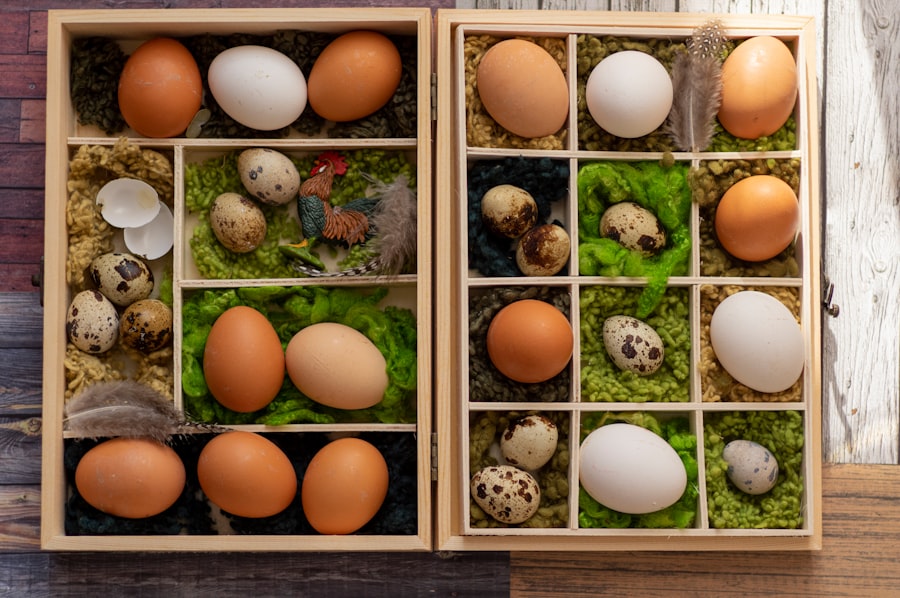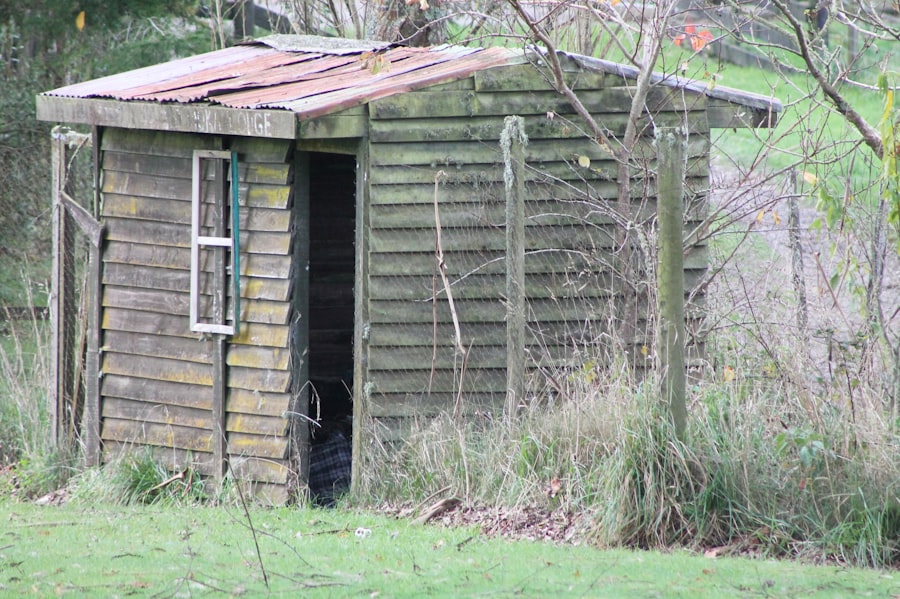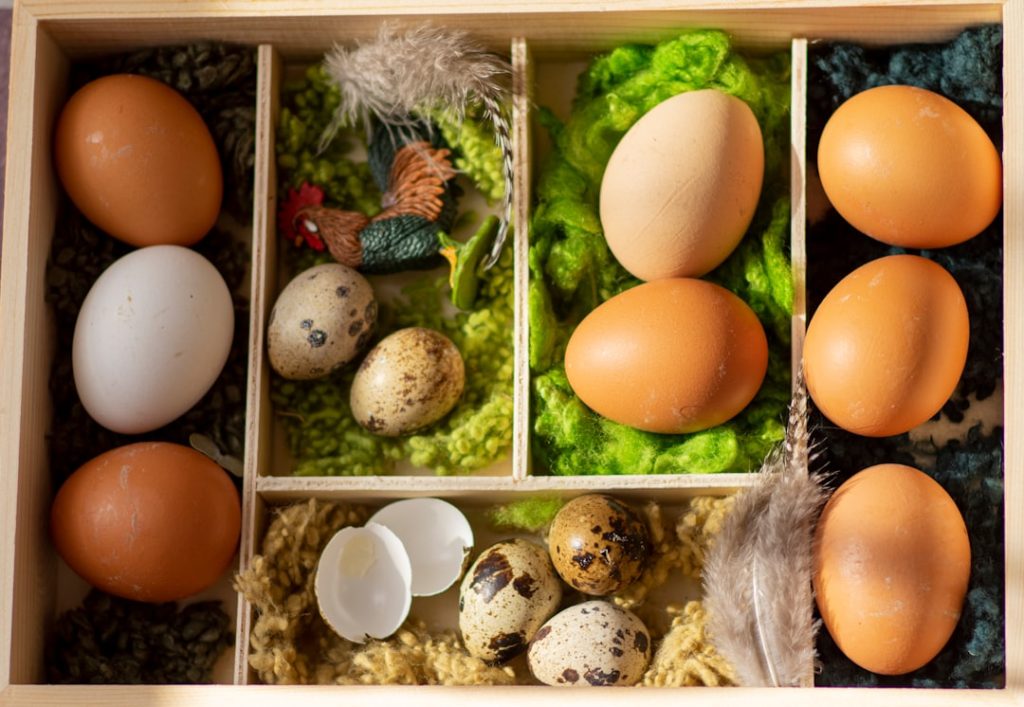When establishing a backyard chicken flock, several initial costs must be considered. The primary expense is purchasing the chickens, with prices varying based on breed and age. A coop and run are essential investments, with costs influenced by size, quality, and additional features like nesting boxes and roosts.
Other necessary items include feeders, waterers, bedding, and maintenance tools. Budgeting for these initial expenses is crucial to ensure proper preparation for starting a backyard chicken flock.
Table of Contents
- 1 Housing and Equipment
- 2 Feed and Supplements
- 3 Veterinary Care
- 4 Time and Labor
- 5 Egg Production
- 6 Potential Savings
- 7 FAQs
- 7.1 What are the initial costs of keeping chickens?
- 7.2 What are the ongoing expenses of keeping chickens?
- 7.3 Are there ways to reduce the expenses of keeping chickens?
- 7.4 What are the potential cost savings of keeping chickens?
- 7.5 Are there any unexpected expenses associated with keeping chickens?
Key Takeaways
- Initial costs for starting a small-scale egg production operation include purchasing chicks, building or purchasing a coop, and obtaining necessary permits and licenses.
- Housing and equipment needs for egg production include a secure and predator-proof coop, nesting boxes, feeders, waterers, and lighting for egg production.
- Feed and supplements are essential for maintaining the health and productivity of laying hens, and costs will vary depending on the type and quality of feed used.
- Veterinary care for laying hens may include vaccinations, deworming, and treatment for common health issues, so budgeting for regular veterinary expenses is important.
- Time and labor required for egg production include daily feeding and watering, egg collection, coop cleaning, and general maintenance of the flock and facilities.
- Egg production levels can vary based on factors such as breed, age, and health of the hens, with potential for significant savings on eggs for personal consumption or sale.
Housing and Equipment
Coop Requirements
A sturdy and secure coop is necessary to protect your chickens from predators and provide them with a safe and comfortable living environment. The size of the coop will depend on the number of chickens in your flock, with each bird requiring a certain amount of space to roost and move around.
Essential Equipment
Additionally, you will need to invest in feeders and waterers to ensure that your chickens have access to food and water at all times. Bedding is also important for keeping the coop clean and providing a comfortable surface for the chickens to walk and rest on.
Additional Considerations
Lastly, you may want to consider additional equipment such as heat lamps or fans depending on your climate and the time of year.
Feed and Supplements

Proper nutrition is essential for the health and productivity of your backyard chicken flock. You will need to budget for a consistent supply of high-quality chicken feed, which can be purchased in bulk to save money in the long run. Additionally, you may want to consider supplementing your chickens’ diet with treats or supplements such as calcium or grit.
These supplements can help support egg production and overall health in your flock. It’s important to research the nutritional needs of chickens and consult with a poultry nutritionist if necessary to ensure that your flock is receiving a balanced diet. Proper nutrition is essential for the health and productivity of your backyard chicken flock.
You will need to budget for a consistent supply of high-quality chicken feed, which can be purchased in bulk to save money in the long run. Additionally, you may want to consider supplementing your chickens’ diet with treats or supplements such as calcium or grit. These supplements can help support egg production and overall health in your flock.
It’s important to research the nutritional needs of chickens and consult with a poultry nutritionist if necessary to ensure that your flock is receiving a balanced diet.
Veterinary Care
Just like any other pet or livestock animal, chickens require regular veterinary care to stay healthy. You may need to budget for routine vaccinations, deworming, and other preventative measures to protect your flock from common diseases and parasites. Additionally, it’s important to have a plan in place for emergency veterinary care in case any of your chickens become ill or injured.
Finding a veterinarian who is experienced in poultry care may be necessary depending on your location, so it’s important to research local veterinary options before bringing chickens into your backyard. Just like any other pet or livestock animal, chickens require regular veterinary care to stay healthy. You may need to budget for routine vaccinations, deworming, and other preventative measures to protect your flock from common diseases and parasites.
Additionally, it’s important to have a plan in place for emergency veterinary care in case any of your chickens become ill or injured. Finding a veterinarian who is experienced in poultry care may be necessary depending on your location, so it’s important to research local veterinary options before bringing chickens into your backyard.
Time and Labor
Raising backyard chickens requires a significant investment of time and labor. You will need to spend time each day feeding and watering your chickens, as well as cleaning their coop and collecting eggs. Additionally, you may need to spend time monitoring your flock for signs of illness or injury, as well as providing enrichment activities to keep them mentally stimulated.
It’s important to consider how much time you are able to dedicate to caring for your chickens before starting a backyard flock. Raising backyard chickens requires a significant investment of time and labor. You will need to spend time each day feeding and watering your chickens, as well as cleaning their coop and collecting eggs.
Additionally, you may need to spend time monitoring your flock for signs of illness or injury, as well as providing enrichment activities to keep them mentally stimulated. It’s important to consider how much time you are able to dedicate to caring for your chickens before starting a backyard flock.
Egg Production

Fresh Eggs Galore
Depending on the breed of chicken you choose, you can expect to get anywhere from 200-300 eggs per year from each hen. This can lead to substantial savings on your grocery bills, especially if you consume eggs regularly in your household.
Superior Taste and Quality
Many people find that the taste and quality of fresh eggs from their own backyard are far superior to store-bought eggs. The difference in taste and quality is a significant advantage of raising backyard chickens.
Cost-Effective and Delicious
By having a steady supply of fresh eggs from your backyard, you can enjoy significant savings on your grocery bills while also indulging in the superior taste and quality of fresh eggs.
Potential Savings
While there are certainly costs associated with raising backyard chickens, there are also potential savings to consider. The most obvious savings come from producing your own eggs, which can significantly reduce your grocery bill if you consume eggs regularly. Additionally, many people find that they are able to save money on fertilizer by using chicken manure in their gardens or compost piles.
Some people also find that they are able to save money on pest control by allowing their chickens to free-range in their yard, as they will eat insects such as ticks and beetles. While there are certainly costs associated with raising backyard chickens, there are also potential savings to consider. The most obvious savings come from producing your own eggs, which can significantly reduce your grocery bill if you consume eggs regularly.
Additionally, many people find that they are able to save money on fertilizer by using chicken manure in their gardens or compost piles. Some people also find that they are able to save money on pest control by allowing their chickens to free-range in their yard, as they will eat insects such as ticks and beetles. In conclusion, raising backyard chickens can be a rewarding experience that provides fresh eggs and potential savings on grocery bills and other expenses.
However, it’s important to carefully consider the initial costs, housing and equipment needs, feed and supplements, veterinary care requirements, and time and labor commitments before starting a backyard flock. With proper planning and dedication, raising backyard chickens can be a fulfilling endeavor that provides numerous benefits for both you and your feathered friends.
If you’re considering keeping chickens, you may be wondering about the expenses involved. According to a recent article on Poultry Wizard, the cost of keeping chickens can add up quickly. From building a chicken coop and run to investing in a heater for the coop, there are many factors to consider when budgeting for your new flock. Check out their article on chicken coop run plans for helpful tips on creating a budget-friendly setup for your chickens.
FAQs
What are the initial costs of keeping chickens?
The initial costs of keeping chickens can include purchasing a coop, feeders, waterers, bedding, and of course, the chickens themselves. These costs can vary depending on the size and quality of the items purchased.
What are the ongoing expenses of keeping chickens?
Ongoing expenses for keeping chickens include the cost of feed, bedding, and any necessary medical care. Additionally, there may be costs associated with maintaining the coop and run, as well as any additional equipment needed.
Are there ways to reduce the expenses of keeping chickens?
Yes, there are ways to reduce the expenses of keeping chickens. For example, you can save money by building your own coop, sourcing feed and bedding in bulk, and utilizing kitchen scraps and garden waste as supplemental food for the chickens.
What are the potential cost savings of keeping chickens?
Keeping chickens can lead to cost savings in several ways. For example, you can save money on eggs by producing your own, and chickens can also help with pest control in the garden, potentially reducing the need for chemical treatments.
Are there any unexpected expenses associated with keeping chickens?
There can be unexpected expenses associated with keeping chickens, such as the cost of treating illnesses or injuries, predator-proofing the coop and run, and any necessary repairs or upgrades to the chicken housing and equipment. It’s important to budget for these potential expenses.
Meet Walter, the feathered-friend fanatic of Florida! Nestled in the sunshine state, Walter struts through life with his feathered companions, clucking his way to happiness. With a coop that’s fancier than a five-star hotel, he’s the Don Juan of the chicken world. When he’s not teaching his hens to do the cha-cha, you’ll find him in a heated debate with his prized rooster, Sir Clucks-a-Lot. Walter’s poultry passion is no yolk; he’s the sunny-side-up guy you never knew you needed in your flock of friends!







